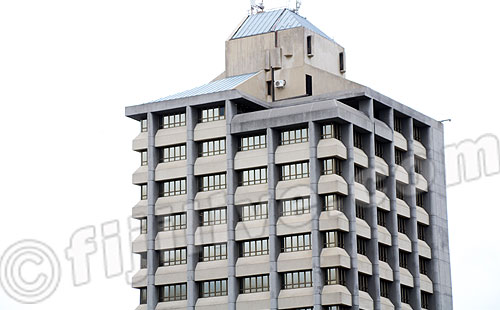The Reserve Bank of Fiji Board at its meeting today decided to maintain the Overnight Policy Rate at 0.25 percent.
RBF Governor and Board chair Ariff Ali said that while the International Monetary Fund indicates that 2023 could be another tough year as global growth is projected to slow further in 2023, some indicators out of the Eurozone and United States (US) economies suggest that the outlook may not be as weak as earlier expected.
He highlighted that a range of data sources indicate that Fiji’s economic recovery continues, on the back of a strengthening tourism industry and its positive flow-on effects to related sectors.
With 636,312 visitors to our shores in 2022, visitor arrivals exceeded expectations and reached 71.1 percent of 2019 levels.
In December alone, Australian visitors reached an all-time monthly high of 42,304 and remained the top source market, followed by New Zealand and the United States.
Sectoral performances such as electricity, sawn timber and mahogany also registered gains in 2022, with some sectors now producing at pre-pandemic levels. Strong consumption activity to date has been supported by increased incomes from higher employment, robust growth in personal remittances and new consumption loans.
In contrast, the pace of investment activity has remained slow as it continues to be affected by the high prices of building materials.
Accommodative financial conditions continue to support the recovery. Ample banking system
liquidity ($2,452.3m as at 25/01) kept outstanding deposit and lending rates at historically low levels and new rates competitive enough to drive private sector credit growth (7.1%) to a 41-month high in December.
In 2022, commercial banks’ new loans totalled $3.3 billion, an increase of 39.7 percent from last year.
On the monetary policy objectives, year-end inflation cooled to 3.6 percent in 2022, much lower than the forecast (5.0%), as prices for food and alcoholic beverages were lower than expected.
Overall, the cost of food and energy continued to drive the annual movement in prices, most of which is a spillover from imported inflation.
In 2023, inflation is forecast to reach 3.0 percent and moderate in the medium term.
In addition, foreign reserves remain comfortable ($3.4 billion as at 26/01), enough to cover 6.3 months of retained imports of goods and services and are projected to remain comfortable in the medium term.
Ali, however, highlighted that risks to the monetary policy objectives remain tilted to the downside, with the main sources of uncertainty from the continued Russia-Ukraine war, the varying timing and magnitudes of central bank policy tightening and the current outlook for the global economy.
He said while the domestic economy is anticipated to grow further this year, the labour market is expected to tighten with increased employment opportunities and migration.
“Considering Fiji’s ongoing recovery and the acceptable outlook on the twin monetary policy objectives, the Board concluded that monetary policy conditions can remain accommodative.”
“The Board will continue to monitor and assess information on global and domestic developments and align monetary policy accordingly.”





